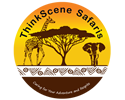Visas
All visitors to Kenya are required to have valid passports. Visas are also required for visitors who are not citizens of the commonwealth countries in order to enter Kenya. At present visitors from Germany, Denmark, Norway, San Marino, Sweden, Ethiopia, Eritrea, Finland, Spain, Turkey and Uruguay do not require visas. However, since visa requirements may change, it is advisable for the visitors to check the current visa requirements through airlines, tour operators or Kenya Tourist Offices, Kenya Embassies or High Commissions in their countries before coming, to avoid embarrassment. Visas normally take up to six weeks to process and are valid for up to a three month period. Those visitors with proper documents and who also possess onward or return tickets may be given visitor’s passes free of charge on arrival at any Kenyan point of entry.
Weather
Kenya enjoys a tropical climate. It is hot and humid at the coast, temperate inland and very dry in the north and northeast parts of the country. The average annual temperature for the coastal town of Mombasa (altitude 17 metres) is 30.30 Celsius maximum and 22.40 Celsius minimum, the capital city, Nairobi (altitude 1,661 metres) 25.20 Celsius maximum and 13.60 Celsius minimum, Eldoret (altitude 3,085) 23.60 Celsius maximum and 9.50 Celsius minimum, Lodwar (altitude) 506 metres) and the drier north plainlands 34.80 Celsius maximum and 23.70 Celsius minimum.
There is plenty of sunshine all the year round and summer clothes are worn throughout the year. However, it is usually cool at night and early in the morning.
The long rains occur from April to June and short rains from October to December. The rainfall is sometimes heavy and when it does come it often falls in the afternoons and evenings. The hottest period is from February to March and coldest in July to August.
The annual migration of wildlife between Serengeti National Park in Tanzania and Maasai Mara National Park in Kenya takes place between June and September. The migration of almost two million wildebeest, zebras and other species is nature’s greatest spectacle on earth. The animal trek has been captured by filmmakers worldwide.
Drinking Water
Drinking water from the tap must be considered risky. Hotels and lodges usually furnish safe water in a thermos flask in guest rooms. Bottled mineral water is available in every hotel andsupermarket.
Voltage
Both mains electricity and generated supply in lodges provide 240 volts AC 50 cycles. Most large hotels and some game lodges provide shaving points with 110v 50 cycles. Sockets are normally three pin and of the ‘square’ variety.
Tipping and Poterage
Although hotels and lodges include a service charge, it is customary to tip porters, waiters, taxi drivers and safari drivers/guides.
Vaccinations
A yellow fever and Cholera vaccination certificate is required in Kenya if visitors are arriving from a country where these diseases are present. Yellow fever certificate is required in Tanzania regardless of country of origin. We advise that all clients seek advice from their doctors when planning to travel. Malaria prophylaxis is recommended.
Souvenirs
Ornamental souvenirs are plentiful. Most hotels and game lodges feature a boutique or two, stocking a wide variety of Kenyan souvenirs. However, the real test is in the art of bargaining at market stalls, wayside outlets and bazaars. The most famous is the Maasai Market Products on offer include accessories such as safari suits kiondos, hats, mats, baskets and containers made fr Your local driver guide in Kenya can offer very useful tips on shopping om indigenous fibres. Kenya coffee and tea make thoughtful presents to take back home.
Arrivals and Departures
Kenya has two main ports of entry by air: Jomo Kenyatta International Airport, Nairobi. Located 16 km from the city center. Moi International Airport, Mombasa. Located 12 km from the town center. Mombasa is the main port of entry by sea.
Opening and Shopping Hours
Major stores, tourist services, offices and museums open from 8.00 am to 5.00 PM in large towns though offices often break for lunch. In rural areas and out in the bush small shops can be open at almost any hour. Souvenirs to take back home can include wood and soap stone sculptures and carvings, ciondos (sisal baskets), beadwork and tribal regalia, masks, textiles and gemstones set in unique jewelers pieces.
Money
There are no restrictions on the foreign exchange you may bring into the country. However, if you wish to take out of the country amounts exceeding Ksh 500,000, you require written authorization from the Central Bank of Kenya.
Foreign-exchange bureaus are the best places to change money compared to banks. They offer better competitive rates and they don’t charge commissions. Banks will change money for you but the commissions charged can be very high. Don’t visibly carry your money around as this makes the work of petty thieves very easy.
With a vibrant tourist industry, here is a country where tipping is expected. In anything more than a basic eatery, 5-10% of the bill is the usual amount expected. On safari, guides, drivers, often rely heavily on tips to get by. Around US$5 per employee per day is sufficient. For excellent service you can always add.
Photography
In Kenya there is abundant wildlife and birdlife in their natural habitats, magnificent scenery, captivating fauna, colorful people, reliable as well as unlimited sunlight. It is therefore not difficult to take memorable photographs even if you are not a professional photographer. When on safari in Kenya please remember that animals you encounter are not tame and as such it is advisable not to get out of your vehicle.
Avoid photographing the local people, government building, military facilities you meet while on safari. If you want to photograph local people ask for permission first.
